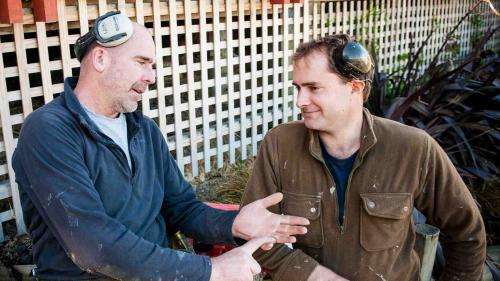Over the last 18 months researchers from Victoria's Language in the Workplace Project have been analysing conversations on building sites and in eldercare facilities and incorporating the transcripts into English teaching materials for refugees and new migrants, who frequently find employment in these fields
Project Director, Professor Janet Holmes, says one of the features of the conversations was small talk, which is often puzzling to people from other cultures, but is used by New Zealanders to build rapport.
"It's important that refugees and migrants understand the function of small talk to help them relate appropriately to their colleagues," she says.
"It was interesting that in eldercare facilities the caregivers used small talk not only to establish rapport, but also to make potentially embarrassing situations, such as showering, more comfortable for the resident.
"Many of the caregivers knew a lot about their clients' lives and seemed to genuinely care about them. This contrasted with overseas studies which suggest that caregivers are primarily task oriented, with a tendency towards patronising language."
The Deputy Director of the project, Dr Meredith Marra, says that humour is an essential part of being accepted in the building community.
"It's common to be teased and workers are expected to take a certain level of jocular abuse—once they've been working there a while they are expected to return the abuse as well."
She says the team was surprised at the level of awareness of hierarchy evident in talk on the building sites.
"You certainly know who the boss is by the language that is used. Even the teaching of skills is approached differently depending on the status of the person being taught."
Dr Marra will be presenting some of the team's findings on humour at the Australasian Humour Scholars Network Colloquium in Wellington in February.
Provided by Victoria University




















